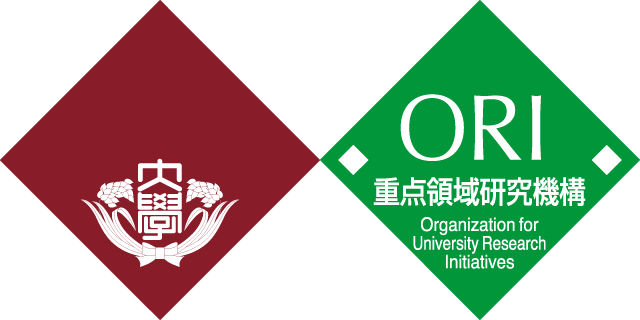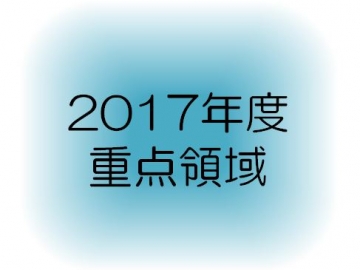Director : Haruhiko Goto
Professor, Faculty of Science and Engineering
Research theme
Research into spacial planning technology for “Medicine Based Town” focused on a super-aging and shrinking society
Overview of research
Medical care, welfare, and health in the regions have become urgent challenges in the cities of Japan as it develops into a super-aging and shrinking society. This research specifically depicts the best approaches to urban spaces and social systems for towns with their focus on these challenges, from the perspectives of both medicine and city planning, and constructs the space planning technology needed to put these approaches into practice.
Through the establishment of home medical care and town medical care systems that do not depend on advanced medical care, the acquisition of compact urban structures that encourage people to leave the house on foot, appropriate management of increasingly de-urbanized suburban areas as recreation spaces, the construction of mechanisms for collaboration and cooperation among the many entities in a region, etc., we will create organic linkages of a variety of functions and measures related to medical care and welfare based on regions, and construct plans and practice theory related to systems to support medical care, welfare, and health in all of the regions.
Specifically, we have established the following six objectives and are aiming to achieve them within the research period.
(1) Establishment and theorization of schemes for “town medical care centers” as places for subacute phase medical care, establishment of new construction and residential visions for handling “home medical care” and schemes for collaboration with medical care and welfare institutions, and development of the technologies to support these steps
(2) Establishment and theorization of schemes for mutually complementary reconstruction between regional medical care and welfare and the community
(3) Establishment and theorization of schemes for “spiritual care (creating a reason for living)” in residential spaces with the focus on the spiritual pain of elderly people
(4) Depiction of a vision of a workable city which contributes to improving the medical care and welfare of the region, and the establishment and theorization of specific measures to realize the vision (including reconfiguration of city functions and reconstruction of the parks and green spaces network)
(5) Urban transportation that creates a compact town and elucidation of the changes in the ways people go out as a result of the new urban transportation
(6) Construction of a framework for the many entities that would operate a “Medicine Based Town” to work together, verification of the possibilities and challenges in policy support for construction of the framework
Research plan
[Fiscal year 2015]
Ascertain and evaluate the domestic and international trends in the various related fields, and the current state of regional medical care and town planning in the region around Kashihara City in Nara Prefecture, the main target region of the research. Furthermore, gather data about the urban structures and city function configuration, pedestrian environment, etc. in the target region, and store it in the GIS platform to construct a space information database.
[Fiscal year 2016]
Construct a hypothesis about methods of planning a “Medicine Based Town” and based on the hypothesis complete the preparation of demonstration experiments mainly about the following three points: (i) demonstration experiment of comprehensive care in a region using collaboration between town medical care and home medical care, (ii) demonstration experiment of mobility and accessibility improvement to encourage people to go out, and (iii) demonstration experiment of an entity, theme, and government boundary-crossing, mutual coordination, multiple entity co-creation platform.
[Fiscal year 2017]
Implement each of the demonstration experiments and based on their outcomes compile the generalizable findings. In addition, based on the outcomes, complete the creation of a concept for the “Medicine Based Town” and depict a specific vision of urban spaces and social systems. In other words, present each of the construction space vision and the vision for collaboration with other functions in the region necessary for “home medical care systems,” the regional space vision and central facility vision necessary for “town medical care systems,” the spiritual care vision necessary for “creating a reason for living for elderly people,” the local community vision and support technology vision necessary for “living support in community units,” the city function configuration and parks and green spaces network vision necessary for “walkable urban spaces,” the transportation network vision and systems vision necessary for “compact city life zones,” and the multiple entity collaborative organization vision necessary for “social systems for constructing MBT” and a vision for the systems to support the organization.
[Fiscal year 2018]
Regarding the urban spaces and social systems vision for the “Medicine Based Town,” hypothetically construct schemes for permanent practice in the region through the co-creation process with multiple entities in the region including governments, and then verify the feasibility of each scheme.
[Fiscal year 2019]
Based on the urban spaces and social systems vision and practical schemes depicted using the research outcomes up until this point, systematize the space planning technology of the “Medicine Based Town.” Then present a specific regional space strategy by actually applying the systematized space planning technology to the target region. In addition, in order to ensure that the “Medicine Based Town” can be implemented in other regions, identify the problem areas related to implementation in light of the various current related measures in the national government and local governments and recommend policies to overcome the problem areas.
Researchers
Takashi Ariga (Professor, Faculty of Science and Engineering)
Yoshihide Nakagawa (Professor, Faculty of Science and Engineering)
Akinori Morimoto (Professor, Faculty of Science and Engineering)
Shu Yamamura (Assistant professor, Faculty of Science and Engineering)
Morio Uzuki (Professor, Faculty of Social Sciences)
Osamu Soda (Professor, Faculty of Social Sciences)
Shota Takamine(Research Associate)
Shu-hsien Lin(Research Associate)
Takefumi Okamura(Researcher(Associate Professor)
Yoshie Shun(Assistant Professor(without tenure)
Faculty of Science and Engineering)
Baba Kiyomasa(Assistant Professor(without tenure)
Faculty of Science and Engineering)
Morita Ryoya(Junior Reseacher,Faculty of Science and Engineering)
Adjunct Researcher
Hirosuke Sato
Hiroshi Hosoi
Toshihiko Yusa
Midori Yamada
Michiro Yoshida
Makoto Kuroiwa
Kazuo Mitani
Mika Nakamura
Yoshiko Tatsumi
Takao Kikuchi
Okamura Takeshi
Contact
E-mail:[email protected]




